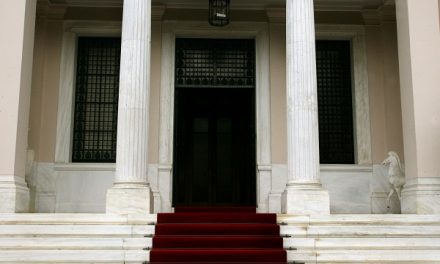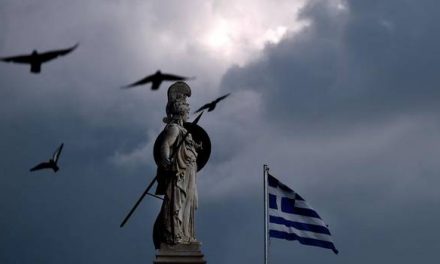NEW YORK — Five ancient coins were returned to the Greek government Monday after a prominent collector from Rhode Island was prosecuted in a New York case that roiled the numismatic world.
Dating as far back as 515 B.C., the silver coins will be displayed for public view and research at the Numismatic Museum of Athens, Manhattan District Attorney Cyrus R. Vance Jr. and Greek authorities announced at a ceremony marking the repatriation of coins dating to 500 B.C.
“The coins being returned to us by the New York County district attorney are exquisite ancient artifacts that reflect Greece’s culture, history and enduring strength,” said Ambassador Christos Panagopoulos. “Back home, where they belong, they will be displayed — with the gratitude of the Greek people to the DA — for all to admire, our citizens and visitors to Greece alike.”
The pieces include two types of ancient Greek currency — staters and a didracham, or two-drachma coin — bearing images that include gods and other mythological figures.
They “will be of greater public benefit in an open place of study and scholarship than locked away in a safe,” Vance said.
The coins were part of a case against hand surgeon and coin aficionado Dr. Arnold-Peter Weiss, whose January 2012 arrest during a coin auction at the Waldorf-Astoria hotel.
An orthopedics professor at Brown University’s Alpert Medical School and author of a hand-surgery textbook, Weiss also had been on a coin collector and investor for 35 years and had served as on the board of the American Numismatic Society.
He later pleaded guilty to attempted criminal possession of stolen property. Those charges involved three coins he thought were fourth century B.C. Greek pieces that had been illegally taken from Italy — but were actually forgeries, prosecutors said. Weiss was aiming to sell one of them for about $350,000 and two others for about $1.2 million apiece, prosecutors said.
As part of his plea agreement, Weiss also forfeited about 20 other coins, including the authentic pieces headed back to Greece. Two of the coins have been returned to a previous owner, and the rest are to be given to cultural and academic institutions, prosecutors said.
Weiss also was required to do 70 hours of community service and write an article about the problem of trading in coins of uncertain origin.
His prosecution furthered a series of court cases and disputes over collecting and trading in objects that Italy, Greece and other countries consider looted pieces of their cultural patrimony.
Institutions including the Metropolitan Museum of Art in New York and the J. Paul Getty Museum in Los Angeles have agreed to return various items to Italy. A former Getty assistant curator was criminally prosecuted in Rome, but the trial ended in 2010 with a judge saying the statute of limitations had expired.



















